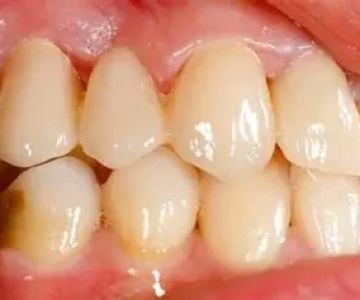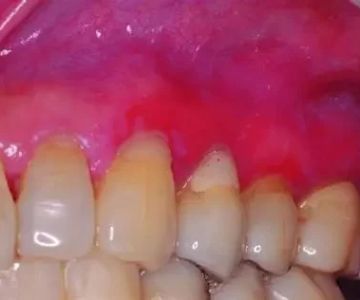
1. Exploring the Link Between Oral Health and Heart Disease
For many people, the question how is oral health related to heart disease might seem surprising. The truth is, research has shown a strong connection between gum disease, chronic oral inflammation, and cardiovascular conditions. Bacteria that thrive in the mouth can enter the bloodstream, potentially contributing to arterial plaque buildup and heart complications. Studies in the U.S. consistently highlight that people with untreated gum disease face a higher risk of developing heart disease compared to those who maintain good oral hygiene.
2. The Science Behind Gum Disease and Cardiovascular Risks
Gum disease begins with plaque, a film of bacteria that irritates the gums and causes inflammation. If left untreated, this inflammation becomes chronic. Medical experts explain that chronic oral inflammation can lead to systemic inflammation, which is a known factor in the development of atherosclerosis. Atherosclerosis narrows arteries, increasing the risk of heart attacks and strokes. This chain reaction shows how the health of your gums can directly impact your heart’s condition over time.
3. Real-Life Stories Illustrating the Connection
Consider the story of a 52-year-old man from Chicago who neglected regular dental care for years. After being diagnosed with advanced gum disease, he later suffered a mild heart attack. His cardiologist explained that his poor oral health may have accelerated the cardiovascular issues. In contrast, a retiree in Florida who kept up with cleanings and flossing not only preserved her smile but also maintained strong heart health into her seventies. These personal accounts reflect the importance of oral health in preventing systemic disease.
4. Preventive Strategies for Oral and Heart Health
The most effective way to reduce the risk of heart disease linked to oral issues is prevention. Dentists recommend brushing at least twice daily with fluoride toothpaste, flossing daily, and using antibacterial mouth rinses. Regular dental check-ups in the U.S. help catch gum disease in its early stages. Alongside dental care, maintaining a healthy diet low in processed sugars and rich in whole foods supports both oral and heart health. Together, these preventive steps create a stronger defense against disease.
5. The Role of Professional Dentistry in Protecting Heart Health
Dentists and cardiologists increasingly collaborate in patient care. Dental professionals can identify early warning signs of gum disease that may signal cardiovascular risks. Meanwhile, cardiologists often advise their patients to prioritize oral hygiene as part of a heart-healthy lifestyle. This integrated approach highlights how modern healthcare in America recognizes the mouth as a gateway to broader systemic health, including the heart.
6. Emotional and Social Impacts of Good Oral and Heart Health
Good oral health not only reduces medical risks but also boosts confidence and overall quality of life. A healthy smile allows people to engage socially without anxiety, while strong heart health supports active lifestyles. One young professional shared how improving his oral hygiene routine not only relieved gum pain but also gave him renewed confidence to exercise and live more fully. These benefits underscore how caring for the mouth and heart go hand in hand in shaping both health and happiness.
7. Family Dentistry Online Recommendations for Comprehensive Care
At Family Dentistry Online, we believe that protecting your smile is also protecting your heart. Our platform connects families and individuals with trusted dental professionals who understand the critical link between oral and overall health. Whether you need preventive care, treatment for gum disease, or guidance on oral hygiene habits, Family Dentistry Online provides reliable recommendations to help safeguard your health for years to come.







 Comfort Dental Puyallup - Your Trusted Dentist in Puyallup4.0 (312 review)
Comfort Dental Puyallup - Your Trusted Dentist in Puyallup4.0 (312 review) Hillcrest Dental Group, P.A.4.0 (826 review)
Hillcrest Dental Group, P.A.4.0 (826 review) East Falls Family Dentistry, LLC4.0 (103 review)
East Falls Family Dentistry, LLC4.0 (103 review) Virginia Biological Dentistry4.0 (250 review)
Virginia Biological Dentistry4.0 (250 review) Morrone, Kaye and Yucha Orthodontics - Moorestown5.0 (387 review)
Morrone, Kaye and Yucha Orthodontics - Moorestown5.0 (387 review) Wayne Dental Care4.0 (41 review)
Wayne Dental Care4.0 (41 review) The Importance of Oral Health Education During Pregnancy for a Healthy Pregnancy
The Importance of Oral Health Education During Pregnancy for a Healthy Pregnancy Why Skipping Dental Checkups Can Lead to Bigger Oral Health Problems
Why Skipping Dental Checkups Can Lead to Bigger Oral Health Problems Best Tips for Brushing Your Teeth Properly for Healthy Gums: Essential Techniques for Oral Health
Best Tips for Brushing Your Teeth Properly for Healthy Gums: Essential Techniques for Oral Health Advantages of Porcelain Dental Restorations
Advantages of Porcelain Dental Restorations How Can Diabetes Cause Tooth and Gum Problems? Preventing and Managing Oral Health Issues
How Can Diabetes Cause Tooth and Gum Problems? Preventing and Managing Oral Health Issues Healthy Habits for Promoting Good Oral Health and Hygiene: Tips for a Healthy Smile
Healthy Habits for Promoting Good Oral Health and Hygiene: Tips for a Healthy Smile